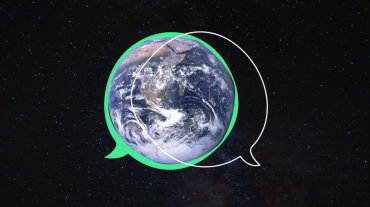Green energy solutions: What are they and why are they so important?
Sources of renewable energy — and developing the infrastructure to harness them — are crucial in the fight against the climate crisis. You can support green energy production via Klima’s carbon offsetting projects. Here’s what you need to know.
What is green energy?
The term ‘green energy’ refers to any electricity generated from renewable sources. This includes solar, wind, hydro, geothermal, biogas, and biomass, rather than carbon-heavy sources like coal and natural gas. Green energy is created with zero carbon emissions, providing the highest net environmental benefit.
Why is green energy cheaper?
In short, because it’s naturally-occurring and sustainable. And, after decades of development, we now have smarter, more cost-effective technology with which to harness and store green energy.

Is green energy reliable?
Energy is energy. In terms of usage, 1kW of electricity generated by green energy solutions is just as effective as 1kW generated by fossil fuels. The only difference is that the latter is neither clean nor renewable.
The question of reliability, therefore, hinges on how sustainable a given resource is. As long as there’s sun, humans can harness solar energy. As long as there’s wind, there will be wind energy. And so on.
Of course, wind turbines will only turn if there is enough wind to propel them. Solar panels collect less energy on cloudy days. In this sense, green energy can be subject to the whims of a changing climate. However, it’s becoming easier to store green energy, thanks to developments like solar batteries and compressed air storage. This allows us to make the most of green energy when the going is good and tap into the excess during low periods.
How is green energy used?
Green energy can be used in any number of ways. There’s the simple stuff like solar panels on your household roof helping to heat your shower, for example. But it can get a lot more innovative than that.
In Sweden, for the past decade, excess body heat from Stockholm Central Station’s 250,000 daily commuters has been channeled into a nearby office building. Heat collected in the station’s ventilation system is used to warm up water in underground tanks, which is then pumped through the heating pipes of a 13-storey building down the street. Simple, naturally-occurring, and non-exploitative. Plus, it’s lowered the office’s energy costs by up to 25%.
Meanwhile, some whisky distilleries in Scotland have partnered with energy companies to provide electricity to 9,000 homes, converting leftover grain and ale residue into energy. The benefits here are twofold – reducing waste by putting it to good use, with estimates suggesting this practice reduces carbon footprints by up to 90%.
Is there a difference between green and renewable energy?
Green energy is a subcategory of renewable energy. Green energy creates zero emissions, while renewable energy, though sustainable, may require environmental trade-offs. For example, large-scale renewable energy production and distribution tends to require a lot of space, either on land or at sea. This invariably affects local ecosystems, so infrastructure must be mindful of minimizing the impact on biodiversity.
In summary, all green energy is renewable, but not all renewable energy is necessarily green.

How can you help?
Klima members can offset their footprints by funding our solar power project in Mauritania. All of our climate projects are verified by a trustworthy, independent third party that ensures the project will benefit the local community and ecosystem.
Mauritania in west Africa is classified as one of the world’s least developed countries, where over two-thirds of the population still don’t have access to the electricity grid. That gives it a lot of potential to implement green energy initiatives without legacy infrastructure getting in the way.
Want to help people in need by helping the planet? Simply download Klima and, in less than three minutes, you can erase 100% of your carbon footprint by supporting amazing initiatives like the Mauritania solar project.


